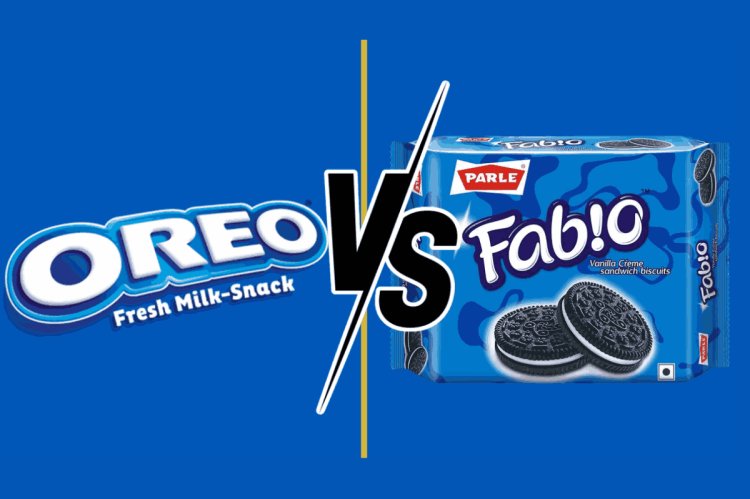Intercontinental Great Brands v Parle Product Private Limited
This case, Intercontinental Great Brands v. Parle Products Private Limited, revolves around trademark infringement allegations concerning Parle's introduction of chocolate sandwich cookies under the brand name "FAB!O," which Intercontinental Great Brands argued was confusingly similar to their own OREO trademark. Despite the defendant's contentions regarding phonetic differences and precedence in similar cases, the court ruled in favour of Intercontinental Great Brands, issuing an injunction against Parle's use of the "FABIO" or "FAB!O" trademarks.

Intercontinental Great Brands v Parle Product Private Limited
CS(COMM) 64/2021
Decided on: 10th February, 2023
FACTS OF THE CASE
The plaintiff alleges that Parle Products Pvt. Ltd., the defendant, began producing their own version of chocolate biscuits with vanilla cream filling under the brand name "FAB!O" in or around January 2020. Prior to 2020, the defendant had been using the brand names FAB and FAB! for their biscuits. However, post-2020, the defendant started selling chocolate sandwich cookies with cream filling under the trademark "FAB!O," which are identical to the biscuits that the plaintiff makes and sells under the OREO trademark. The defendant continues to use the FAB! mark for all their other biscuits. The plaintiff argues that despite being spelt FAB!O, the mark on the defendant's biscuit should be pronounced FABIO, which is confusingly similar to the plaintiff's OREO mark.
CONTENTION OF PLAINTIFF
As per the plaintiff's claims, Parle Products Pvt. Ltd., the defendant, allegedly launched a new range of chocolate cookies filled with vanilla cream under the brand name "FAB!O" in or around January 2020. However, the plaintiff argues that prior to 2020, the defendant had already been using the trademarks FAB and FAB! for their biscuits. After 2020, the defendant started selling chocolate sandwich cookies with cream filling under the new trademark "FAB!O."
The plaintiff further states that the OREO trademark is exclusively used for cream-filled chocolate sandwich cookies, which are similar to the cookies that the plaintiff manufactures and markets under the FAB!O mark. The plaintiff claims that the trade dress of the package used by the defendant to produce and market its FAB!O biscuits is also deceptively similar to the trade dress of the package used by the plaintiff.
CONTENTION OF DEFANDANTS
The defendant is arguing that there is no phonetic connection between the words "OREO" and "FAB!O," despite the common letter "O". The defendant has referenced several previous court cases, including Biofarms v. Sanjay Medical Store, Cadila Laboratories Ltd. v. Dabur India Ltd., CFA Institute v. Brickwork Finance Academy, and Diageo North America, Inc. v. Shiva Distilleries Ltd., to support his claim that two marks cannot be considered phonetically similar if their first syllables differ.
Furthermore, Mr. Sethi, the defendant's representative, has submitted that the OREO mark used by the plaintiff is distinguishable from the mark FAB! O used by the defendant on its biscuit packages, with regards to its phonetic, aesthetic, and structural properties.
COURT JUDGEMENTS
In a recent court ruling, Justice C. Hari Shankar declared that Parle is prohibited from using the trademarks "FABIO" or "FAB!O" for any purpose. The court's decision was based on the fact that there is no other biscuit available in the market that bears a similar name, which increases the likelihood of customer confusion. According to the ruling, this injunction will apply not only to future products but also to stocks that are currently in the defendant's possession and have yet to be cleared. It is important to note, however, that the injunction will not extend to stocks that have already been released to the market. The court's decision is expected to have a significant impact on Parle's branding and marketing strategies, as the company will now have to come up with new trademarks that do not violate the court's ruling.
CONCLUSION:
The court's ruling in favour of the plaintiff underscores the importance of protecting intellectual property rights, particularly trademarks, in the marketplace. In this case, the court recognized the potential for confusion between the defendant's "FAB!O" mark and the plaintiff's well-established "OREO" mark, given their similar phonetic sounds and product offerings. By prohibiting the defendant from using the contested trademarks, the court has upheld the integrity of the plaintiff's brand and prevented consumer confusion in the market.
This decision serves as a reminder to companies of the need to conduct thorough research and due diligence when developing and registering trademarks to avoid infringing on existing rights. It also highlights the role of the judiciary in safeguarding fair competition and protecting the interests of both businesses and consumers in the marketplace.












